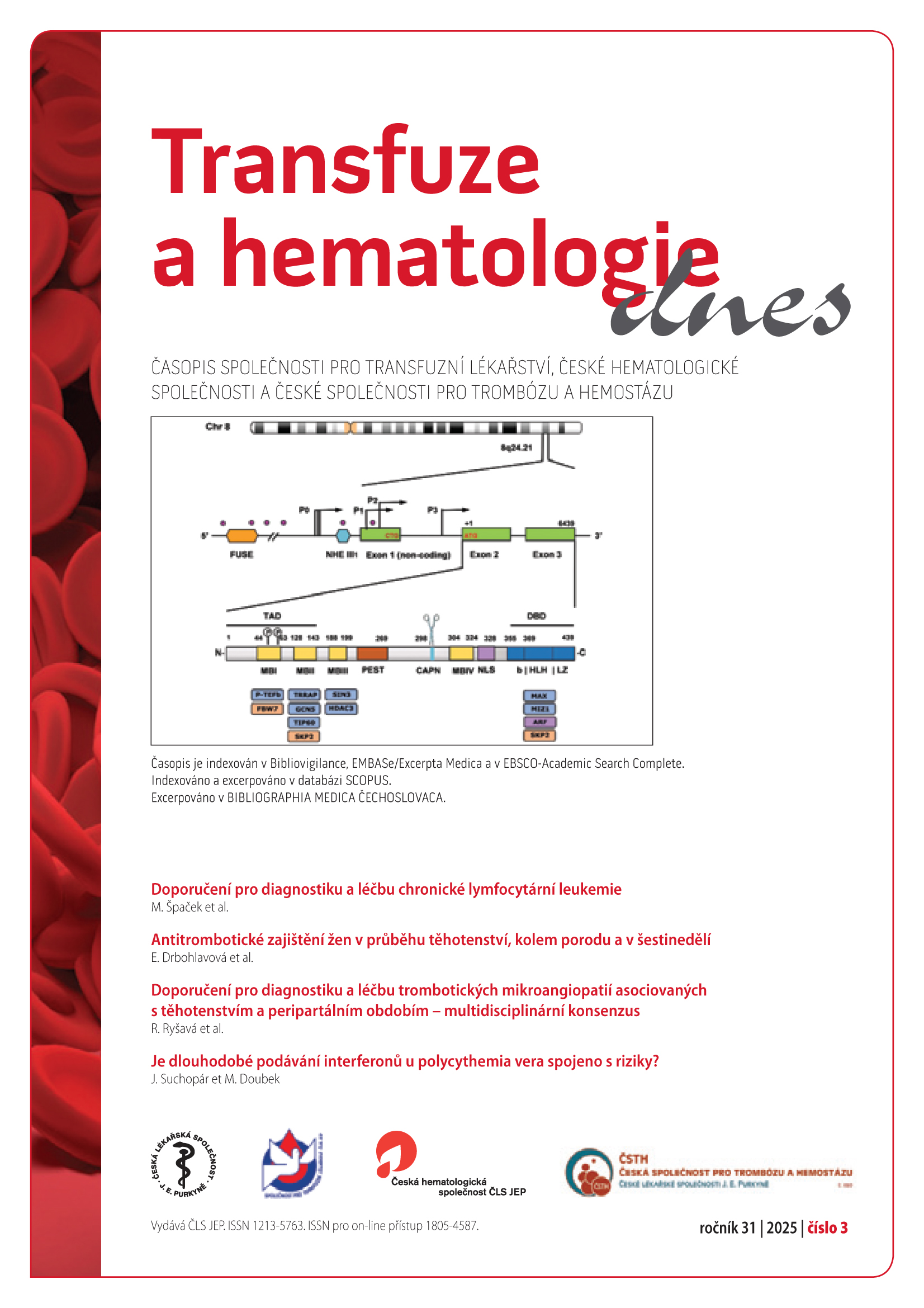Spontánní remise u akutní myeloidní leukémie
Keywords:
spontaneous remission, acute myeloid leukaemiaAbstract
SUMMARY
Acute Myeloid Leukaemia (AML) is a malignant hematopoietic disorder with high mortality, which remains challenging to treat despite advances in therapy, particularly in older patients with comorbidities and those at high risk. The vast majority of patients require intensive treatment, and achieving consolidation of remission and cure often necessitates allogeneic hematopoietic stem cell transplantation. Nevertheless, there are extremely rare cases of spontaneous remission of AML, which are typically of short duration. Hypotheses regarding the underlying mechanism of spontaneous remission frequently highlight an immune-mediated effect, often following an infection.
This study focuses on a review of available case reports describing instances of spontaneous remission between 2004 and 2023. In total, we identified 27 cases in patients with a median age of 59 years (range 28–77 years), 19 of whom were male. The most common subtypes of AML were M2 and M4, with a normal karyotype being the most frequently reported cytogenetic finding. The duration of spontaneous remission ranged from 0.3 to 120 months, with a median of 6 months. We also briefly describe our own experience with a case of spontaneous remission in a 75year-old woman with a cytogenetic finding of t(9;11)(p21;q23) and trisomy 8, whose spontaneous remission has currently lasted 48 months.


